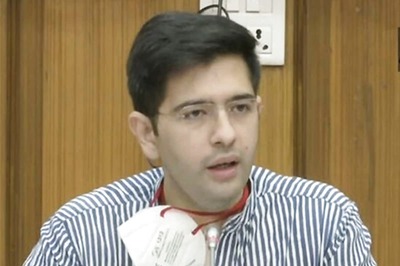
views
New Delhi: The World Health Organisation had some harsh words for the world on Friday. Work on controlling non-communicable or lifestyle diseases has been “disappointing”, it said in its latest report released in Geneva on Friday.
The Independent High-level Commission on Non-communicable Diseases (NCD) while releasing its report pointed at the lack of steady progress. It said the slow progress has upended any hopes of achieving the Sustainable Development Goals by 2030 on health, specifically to reduce premature mortality caused by non-communicable diseases by one-third.
“Because many policy commitments are not being implemented, countries are not on track to achieve this target. Country actions against NCDs are uneven at best. National investments remain woefully small and not enough funds are being mobilised internationally. There is still a sense of business-as-usual rather than the urgency that is required. Plenty of policies have been drafted, but structures and resources to implement them are scarce,” wrote the Co-Chairs of the Commission in the report.
Bringing these uncomfortable truths closer home, report contributor Dr. Vikram Patel, one of India’s leading psychologists said that India is most certainly not doing fine towards achieving these targets.
“India is at the centre of an NCD epidemic,” Patel, Professor of Global Health and Social Medicine and Psychiatrist, Harvard Medical School told News18 adding that the only comprehensive way to manage the situation is to redesign primary healthcare in the country.
The most common NCDs are heart diseases, respiratory conditions, diabetes, cancer, mental illnesses and even suicides. Together, they are responsible for 61 percent of the deaths in India, far more than infectious diseases. The progress report put deaths due to NCDs in India at 5,817,000 in 2017.
The report noted, that India had fulfilled its national NCD targets. The deaths could be an underestimation, as India’s mortality data is only partially up to date, and the country’s national integrated NCD policy/strategy/action plan has not been achieved. Instead, there are piecemeal, some not very well thought out measures being implemented by different states.
The report shows that India’s work on tackling the three of the largest drivers behind lifestyle diseases — unhealthy food, tobacco and alcohol — has been uneven, especially when it comes to taxing these products.
“The government needs to recognise that lifestyles are being driven by commercial interests,” said Patel. “If the Prime Minister can champion cleanliness he must champion protecting public health from these interests.”
If it is easier and cheaper for a child to purchase a packet of chips than fruits or vegetables, it is a marker of how healthy choices are inaccessible or unaffordable to many.
These are, then, diseases of poverty, said Patel, and suicide and alcoholism are major sources of concern. He gave Bihar’s prohibition as an example, calling it a draconian policy level intervention in the place of one that will actually tackle the issue and understand the roots of alcoholism.
On the other hand, Kerala made headlines in 2016 for its 14,5 percent ‘fat tax’, hoping to reduce the consumption of NCD causing junk food by making it pricier. However, even then public health experts had pointed out that sugar was a bigger culprit that tax.
The current model of NCD care in India means either too much care in private or government super speciality hospitals that often impoverish the patient, said Patel, or no care at all. Primary healthcare, that needs to tackle NCDs, is still organised around acute management of large scale events or episodes, such as infectious diseases. That, said Patel, is how primary care was built decades ago, and it is incapable of providing the chronic care that NCDs need.
Primary care needs to take into account that there is no cure for patients, but long term, sometimes lifelong management. It needs not only doctors but a combination of community health workers providing not only medicines but psychological and social care, as ASHA workers are already doing in some states.



















Comments
0 comment